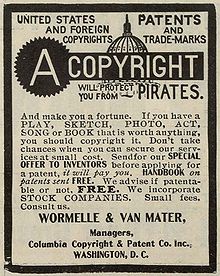
For the last couple of weeks there has been this odd and mostly (but not entirely) facetious thought running around in my brain…
Among the Edward Snowden related revelations we know the N.S.A. has downloaded tremendous amounts of data which it is storing. Though the focus has been on location data as well as metadata, it sure sounds like they are copying and storing as much as they can from the devices of persons considered to be of interest. Depending on which media report you are reading, those persons of interest might be restricted to just some foreign nationals, or just about anybody.
Among those downloaded and stored materials it seems likely that there must be a fair bit of copyright material including films and songs. Shouldn’t the music and film/TV industry sue the U.S. gov’t for intellectual property breaches on that basis? After all in the past those “copyright industries” have demonstrated a willingness to sue users who they feel have been improperly downloading. Or is surveillance fair use/fair dealing? 😉
What little I could find and follow on the statutory basis for NSA intervention, there are arguments that the process legitimately exempts government from ordinary search warrant and privacy requirements. However have not anywhere seen any suggestion that the NSA would be exempted from IP violations.
This is all cute in theory. Of course I must be missing something big and obvious here – what is it?
jon
 Communications Law
Communications Law
Jon,
Interesting idea. Provided they’ve actually got copies of songs and movies (which I suppose is possible), I think the key limitation here is sovereign immunity. Unless US the government waives sovereign immunity, it is not liable to private parties for IP violations. It does waive sovereign immunity for copyright infringement, but only to a limited extent.
Also, much of what the NSA is doing is classified as a state secret, so you probably couldn’t get discovery unless you fought for that too. It’s theoretical possible to get discovery, but it can be quite difficult. C.f. http://www.washingtonpost.com/blogs/the-switch/wp/2013/08/22/heres-how-privacy-advocates-shined-light-on-the-nsas-unconstitutional-surveillance/
Also, cases like Diebold suggest that when you’re using claims about (C)-protected documents to prevent something not related to the economics of copyright, the thing you’re complaining about is probably fair use. In other words, I think the government might actually have a fair use argument to the extent they are not interested in watching the movies or listening to the songs they might have swept up.
https://www.eff.org/cases/online-policy-group-v-diebold
Finally, the US government and the copyright industries work hand in hand all the time these days. The IP sector has the same revolving door between government and private work. Also see the DOJ going after MegaUpload. So I really can’t imagine the entertainment industries suing the US government — it would be like suing your spouse! 🙂